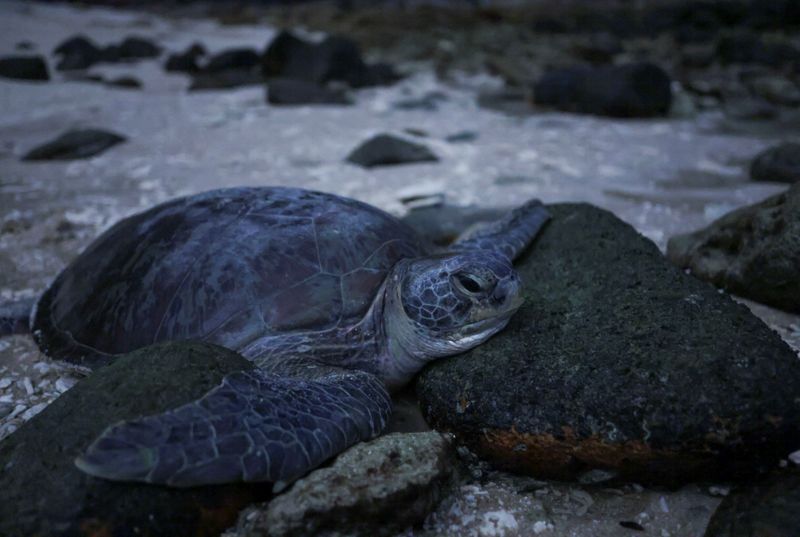By Mandy Leong and Hasnoor Hussain
KUALA LUMPUR (Reuters) – On a remote Malaysian beach, a group of volunteers carefully retrieved newly laid sea turtle eggs in the sand and moved them to a shady, cooler location, responding to researchers’ fears that warmer weather is leading to fewer male hatchlings.
The temperature of the developing turtle eggs determines the sex. Observers at the Chagar Hutang Turtle Reserve on Redang Island believe fewer males are already being hatched due to climate change. The situation is exacerbated this year by prolonged hot and dry spells caused by the El Niño weather phenomenon.
“Sea turtle conservationists have been concerned that unchecked global warming will be harmful in the future, in the next 15, 20, 30 years… because it will feminize hatchling sea turtle populations,” said Nicholas Tolen, a researcher at the University of Malaysia Terengganu. said.
Moving nests to shadier spots or irrigating them with water has been proven to help lower incubation temperatures, although the success of the reserve’s program was still being measured.
Such methods were also preferable to artificial incubators, which could disrupt sea turtles’ understanding of Earth’s magnetic field, affecting their orientation and ability to nest, the researchers said.
(Reporting by Mandy Leong and Hasnoor Hussain; Writing by Rozanna Latiff, Editing by Alexandra Hudson)







